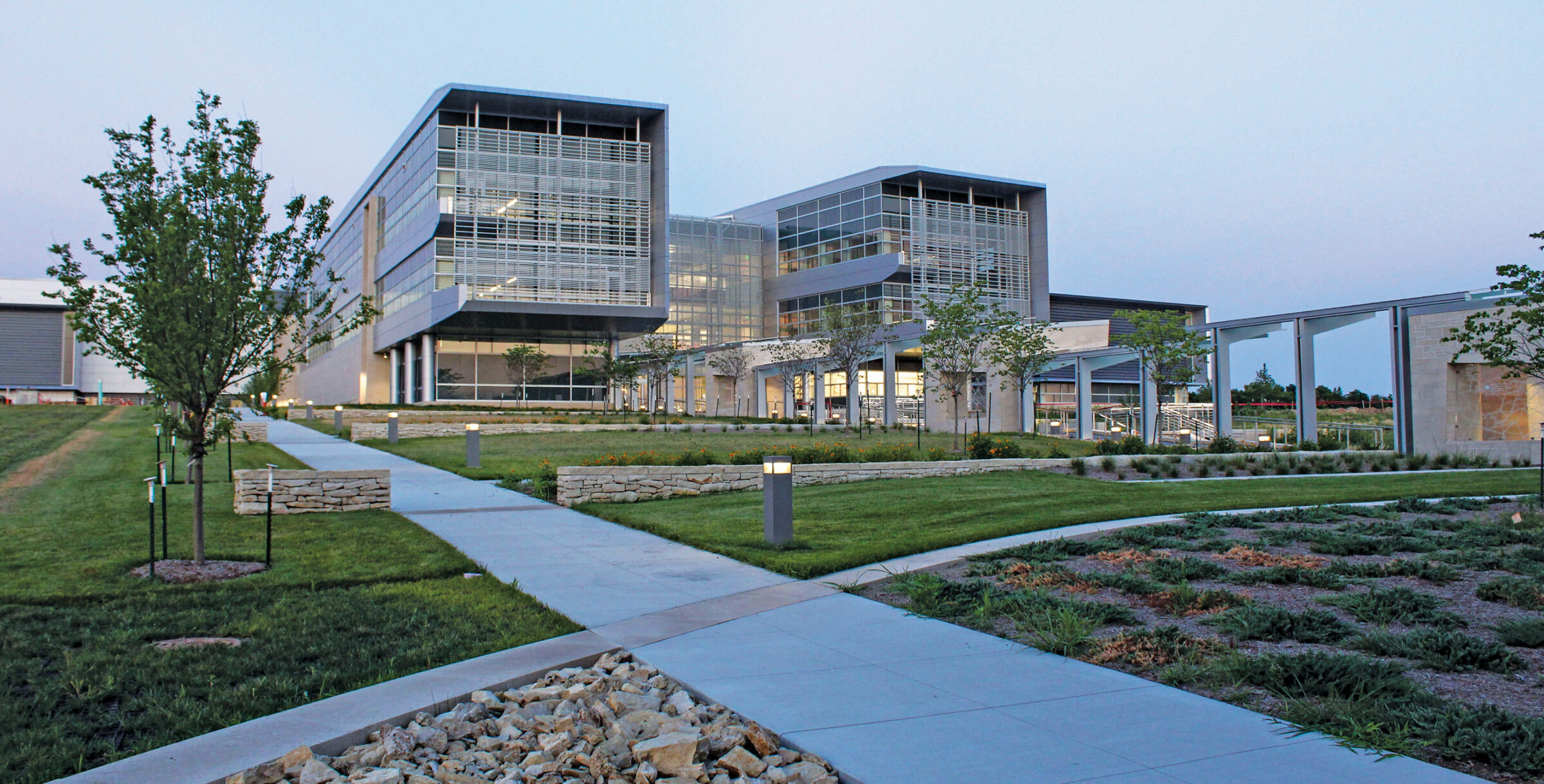Most states have specialized concentrations of employment in at least one of five bioscience subsectors, according to “The U.S. Bioscience Industry: Fostering Innovation and Driving America’s Economy Forward 2022,” from TEConomy Partners LLC and BIO, the Biotechnology Innovation Organization. Kansas has specialized concentrations in two of those subsectors — Agricultural Feedstock & Industrial Biosciences and Pharmaceuticals. What’s more, the state is seeing employment growth in those specialties as well as in the other three subsectors: Medical Devices & Equipment; Research, Testing & Medical Laboratories; and Bioscience-related Distribution. That’s covering the bases.
More than 40 biotech companies do business in The Sunflower State, including Altasciences and Celgene in Overland Park, Corbion and TVAX Biomedical in Lenexa and AlphaBiosystems and Fagron Sterile Services in Wichita. Lawrence, Manhattan and Olathe also are home to multiple biotech companies. Clara Biotech, which specializes in exosome isolation technology for use in diagnostics and treatment of multiple diseases, picked Lawrence, home of the University of Kansas, located just west of the Kansas City metro. There it is part of the KC Collective, a consortium for startups in multiple disciplines, providing access to venture capital funding, accelerators, education programs, networking and other resources.
Protecting the Food Supply
Manhattan is home to the Department of Homeland Security’s National Bio and Agro-Defense Facility (NBAF), which is operated by the U.S. Department of Agriculture. Adjacent to Kansas State University’s Biosecurity Research Institute, the 574,000-sq.-ft., $1.25 billion facility is charged with protecting the nation’s food supply and public health. Core competencies include diagnostics, basic and applied research, vaccine development, agriculture biological countermeasures and others. NBAF will take over federal Biosafety Level 4 animal disease research currently conducted in Plum Island, New York. This includes relocation of the Foreign Animal Disease Diagnostic Laboratory and the Foreign Animal Disease Research Unit.
Additionally, two new USDA units, the Foreign Arthropod-Borne Animal Disease Research Unit and the Zoonotic and Emerging Disease Research Unit, will focus on research and countermeasures for high-consequence animal diseases. NBAF also will be home to a Biologics Development Module that will facilitate transitioning of new innovations from research to commercially viable countermeasures such as vaccines and antivirals.
Meanwhile, private-sector biotech investment in Kansas was robust in 2022. In October, KCAS Bioanalytical and Biomarker Services opened a $28 million laboratory in Olathe that it says will create 175 new jobs. KCAS, an Integris BioServices company, is a contract research organization supporting biotech, pharmaceutical and animal health drug development programs. The company says the new laboratory will provide advanced technology and expertise across the complete R&D range of discovery, preclinical and clinical studies.
“We are proud to officially celebrate the grand opening of our new purpose-built facility positioned in the Kansas Bioscience Park campus. The support of state and local leadership has been instrumental in KCAS making Kansas home to our growing organization,” said CEO John Bucksath at the facility opening. “This investment, along with the recent acquisitions of FlowMetric and Active Biomarkers, has positioned KCAS for global expansion and significant gains in capacity that allow us to attract expertise and serve our customers as the CRO of choice for the global pharma and biopharma industries. As one of the area’s largest employers, we continue to look for top talent to help us grow both locally and globally.”
Manhattan: ‘The Perfect Location’
In April, Scorpion Biological Services, a subsidiary of Heat Biologics, Inc., began work on a 500,000-sq.-ft. biomanufacturing facility in Manhattan. The $650 million project will create 500 new, high-paying jobs within the next seven years. The company says the facility will support the development of vaccines that enable an accelerated response to global biological threats. It also intends to provide commercial-level development, manufacturing and bioanalytical testing services at every stage for biopharmaceutical products on a fee-for-service basis to the global health care industry.
The main drivers behind the Manhattan location are proximity to Kansas State University, a world-class public research university; innovative private-sector partners; critical national security; and Kansas’ skilled workforce.
“With a model that starts with discovery at our Skunkworx subsidiary in North Brunswick, New Jersey, and ends with commercial scale manufacturing here in Manhattan, this facility represents the next stage in our evolution, enabling us to combine speed and agility with the full integration of discovery, development and manufacturing,” said Jeff Wolf, CEO of Heat Biologics, in a press release.
Added David Halverson, president of Heat’s Scorpion subsidiary, “We are very excited to break ground on this new facility. There is a strong demand for world-class biomanufacturing, which we expect to continue well into the future. We intend to help fill that demand with our newest facility in Manhattan, Kansas. The 500,000-square-foot Manhattan facility is being designed to service up to 144,000 liters across 48 bioreactors. Powered by an excellent Kansas workforce, we’re looking forward to rapidly growing and expanding Scorpion, and Manhattan is the perfect location for our newest facility.”

